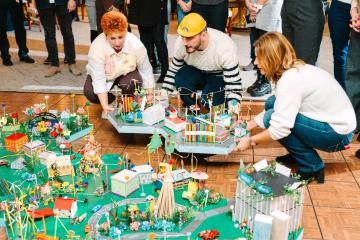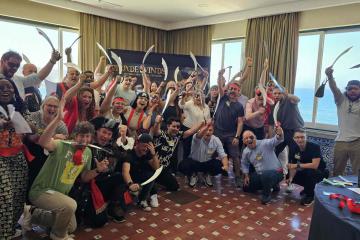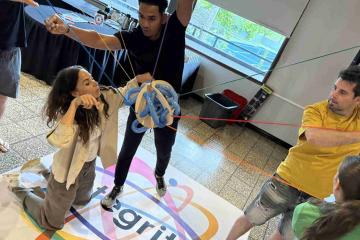It seems like a dilemma Tuesday, but with this ethical dilemma, we immediately have the bull by the horns. Because do you mainly go for hard skills such as knowledge, or do you also leave room for human skills such as listening and empathy?
What are Human Skills?
People mainly talk about hard and soft skills in practice, but I prefer to talk about hard and human skills. I wrote earlier that soft skills do not exist, but human skills do. So back to human skills, because what are they? Human skills are the skills that make you human. These include skills such as empathy, active listening, adaptability and coaching. Although you need hard skills to perform your job, human skills ultimately determine how far you will get in your career. And how successful you become.
Why human skills matter
Within an organization, human skills are of great value, and they ensure that employees interact more easily and better with each other. Just think about your colleagues: if you get stuck on a project and want to enlist the help of someone always willing to help, do you experience a barrier to walking in with them? Probably not. But what happens if only one person can help you, and it's that high potential who doesn't excel at listening? Then you probably think twice before you walk in there. Human skills, therefore, not only benefit the working atmosphere but also ensure that work is done more efficiently. Or, as Simon Sinek says: human skills make you a better colleague and a better person.
Another big advantage in this time, in which technological developments are developing faster than ever, is the human part of the skills. Artificial intelligence seems to catch up with us in certain areas, but AI will never become more human than humans. And so human skills are also part of the most important future skills.
See what else Simon Sinek has to say about human skills here.
How do human skills development work?
You are probably now ready to see that human skills matter, both within a professional working environment and privately. An important next step is to realize that you can link the development of human skills to a team building activity. And by consciously developing these skills, interest in them also grows. In other words: practice skills.
One way we practice these skills is through an infinite loop. A group of six colleagues are assigned to open virtual doors based on the information they receive. Only one colleague gets virtual reality goggles and needs the information from the other five colleagues to open the doors. This, therefore, requires empathy from both parties because the person to whom you transfer the information is in a completely different situation and position than you. It is then important to ask small questions, not to make assumptions and to check information repeatedly. You want to put the person receiving the information at ease, build trust and coach through communication correctly. And so you suddenly worked on your human skills.
Can you improve your human skills yourself?
Unfortunately, there are no ten practical tips or steps to improve human skills. They are intangible skills that require continuous development, making them difficult to grasp. Let alone with a head and tail to improve. But recognizing that human skills matter, and realizing that a team building activity can contribute to this, is an important first step.
Conclusion
Many companies have a wide range of leadership programs, and the talents are recognized early and taken on to become top leaders. Very good, of course, but you want to develop your entire workforce. Only then can you lift your organization to a higher level and express your appreciation to everyone. Organizing a team building activity for the whole company is exactly what you do in an accessible way and with room for everyone's human skills. You are starting with yours.





